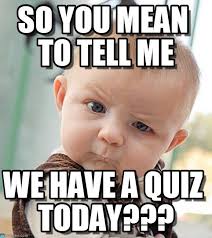Day 97: Save the Pygmy hog!
Students will be able to summarize articles in their own words and categorize critiques.
This past Saturday I drove down to the capital to take my official high school English teacher licensing test. I'm teaching with my Massachusetts license, and my district would really prefer I was legally licensed in this state. Anyway, after I wrote a 10th-grade level expository literary analysis (I've been writing practice 10th grade expository essays for the last four months; it was all I could manage), I was driving home and listening to Marketplace on American Public Media's local station. I heard a few interesting segments, and since sharing them on Facebook would be a little too much, I shared them with my 15- and 16-year olds.
Today's goal was to move beyond "main idea" into "summary" - I know, "Oooooh," right? I printed the transcription and we listened to the podcast for a segment about the increase in electronic giving in churches. We brainstormed the main idea and a few supporting details, and then combined them to write an accurate summary. They, the kids got into pairs and read one of three other articles I had pulled, and did the same process on their own. They could read the Atlantic's original 1960 To Kill a Mockingbird review, a Marketplace article on unlocked cell phones, or an article on new credit card fees. In retrospect these were probably not the most exciting articles I could have picked, but I thought they were really interesting at 6:45 this morning when I was printing them. They were certainly more interesting than the workbook's offering - either "A history of the toothbrush" or an article about the decline in the pygmy hog population. I kid you not, this is in my curriculum resources. At least mine were more relevant to my students' lives (technically one girl did tell me it was interesting that toothbrushes used to be made from hog bristle).
This past Saturday I drove down to the capital to take my official high school English teacher licensing test. I'm teaching with my Massachusetts license, and my district would really prefer I was legally licensed in this state. Anyway, after I wrote a 10th-grade level expository literary analysis (I've been writing practice 10th grade expository essays for the last four months; it was all I could manage), I was driving home and listening to Marketplace on American Public Media's local station. I heard a few interesting segments, and since sharing them on Facebook would be a little too much, I shared them with my 15- and 16-year olds.
Today's goal was to move beyond "main idea" into "summary" - I know, "Oooooh," right? I printed the transcription and we listened to the podcast for a segment about the increase in electronic giving in churches. We brainstormed the main idea and a few supporting details, and then combined them to write an accurate summary. They, the kids got into pairs and read one of three other articles I had pulled, and did the same process on their own. They could read the Atlantic's original 1960 To Kill a Mockingbird review, a Marketplace article on unlocked cell phones, or an article on new credit card fees. In retrospect these were probably not the most exciting articles I could have picked, but I thought they were really interesting at 6:45 this morning when I was printing them. They were certainly more interesting than the workbook's offering - either "A history of the toothbrush" or an article about the decline in the pygmy hog population. I kid you not, this is in my curriculum resources. At least mine were more relevant to my students' lives (technically one girl did tell me it was interesting that toothbrushes used to be made from hog bristle).





Comments
Post a Comment